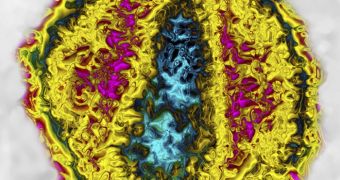The two Boston patients who received bone marrow transplants last year, and who were proposed as the first whose AIDS had been cured by doctors, are still infected with HIV, researchers say. This means that the goal of creating a working HIV/AIDS vaccine is as elusive as ever.
In late 2012, researchers including Dr. Katherine Luzuriaga from the University of Massachusetts reported that HIV traces had disappeared from the bloodstream of the two patients after receiving bone marrow transplants. The two were not named, in order to protect their identities.
They received bone marrow samples from a donor whose genetics did not necessarily make them resilient to HIV infections. Doctors were curious to see whether or not this would enable their immune systems to fight off the retrovirus and reduce the potential damage of AIDS on their bodies.
While early results were very encouraging – the patients remained HIV-free as far as the researchers could tell – things degenerated a few months ago. The first patient experienced a relapse in HIV presence this August, while the second revealed similar signs of the virus in November.
They had been off antiretroviral medication for 7 and 15 weeks, respectively, by July, when the Boston group first announced the potential discovery of a cure against HIV. Scientists with the team told at an AIDS meeting in Kuala Lumpur, Malaysia, that bone marrow transplants appeared to eliminate the virus.
Numerous research teams around the world were getting ready to replicate the results. The reason why the scientific community was so excited about the Boston experiments is that the donor who provided the bone marrow for the two patients was not genetically resilient to HIV.
The only person to be successfully cured of HIV remains Timothy Brown, 47, an American citizen who received a bone marrow transplant in Germany about 6 years ago. However, his donor had a genetic ability to fight off HIV, NPR reports.
The new results indicate that the human immunodeficiency virus should not be underestimated. Scientists have known for a long time that the pathogen can take refuge in a variety of cells when it comes under attack, and then use them as a base for future expansion once the danger passes.
Researchers say that even this failure in developing a new cure is something that could help us move forward with finding a solution to this problem. The Boston team was able to collect a wealth of data on how HIV behaved during treatment, which could now be put to good use in developing other potential cures.

 14 DAY TRIAL //
14 DAY TRIAL //